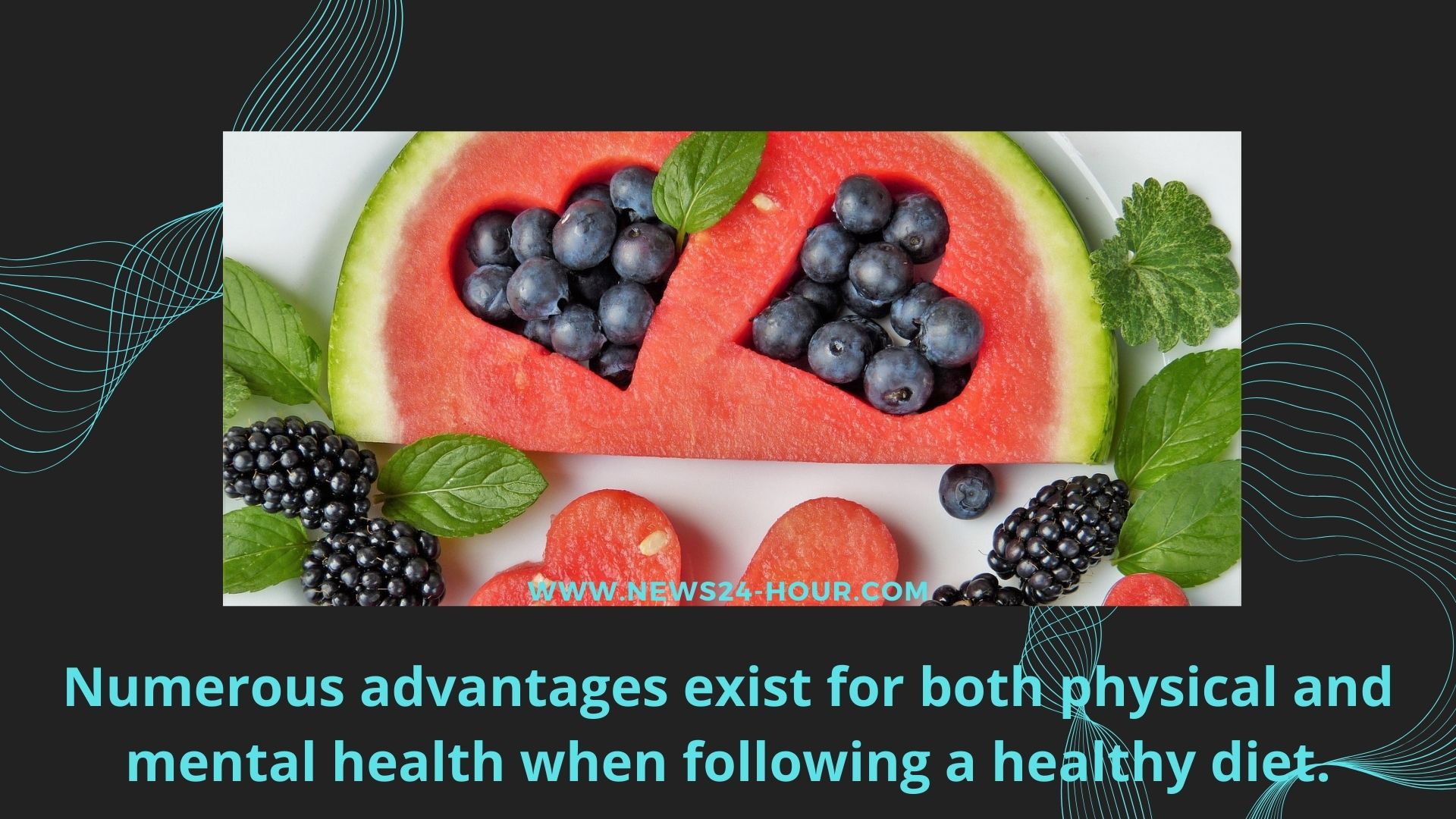Here are a few main benefits:
Weight management:
By giving the body the nutrients it needs without going overboard in calories, a balanced diet helps people maintain a healthy weight and avoid obesity and its associated health problems.
Better Heart Health:
By lowering blood pressure, inflammation, and cholesterol, a diet high in fruits, vegetables, whole grains, and lean proteins can reduce the risk of heart disease.
Increased Nutrient Intake:
Eating a range of foods high in nutrients guarantees that the body gets the vital vitamins, minerals, and antioxidants needed for healthy operation and disease prevention.
Enhanced Energy:
Foods high in nutrients give you energy that lasts all day, which helps you stay productive and less tired.
Enhanced Digestive Health:
Fruits, vegetables, and whole grains are examples of foods high in fiber that improve digestion, fend off constipation, and preserve a balanced gut flora.
Stronger Immune System:
Eating a balanced diet helps maintain a strong immune system, which lowers the risk of infection and speeds up the healing process after illness.
Better Mood and Mental Health:
Studies have shown a correlation between certain nutrients, such as the omega-3 fatty acids found in fish and the folate found in leafy greens, and improved mental and cognitive function, which lowers the risk of depression and anxiety.
Reduced Risk of Chronic Diseases:
Type 2 diabetes, some cancers, and osteoporosis can all be prevented with a diet high in fruits, vegetables, whole grains, and lean proteins.
Healthy Aging:
Maintaining your bone density, muscle mass, and cognitive abilities as you age can help you live a longer, better life.
Improved Skin Health:
Eating a diet rich in antioxidants and staying hydrated with water and fruits can help you keep your skin in good condition and lower your risk of wrinkles, acne, and other skin issues.
In summary, eating a balanced diet improves not only physical health but also longevity, mental health, and overall quality of life.

